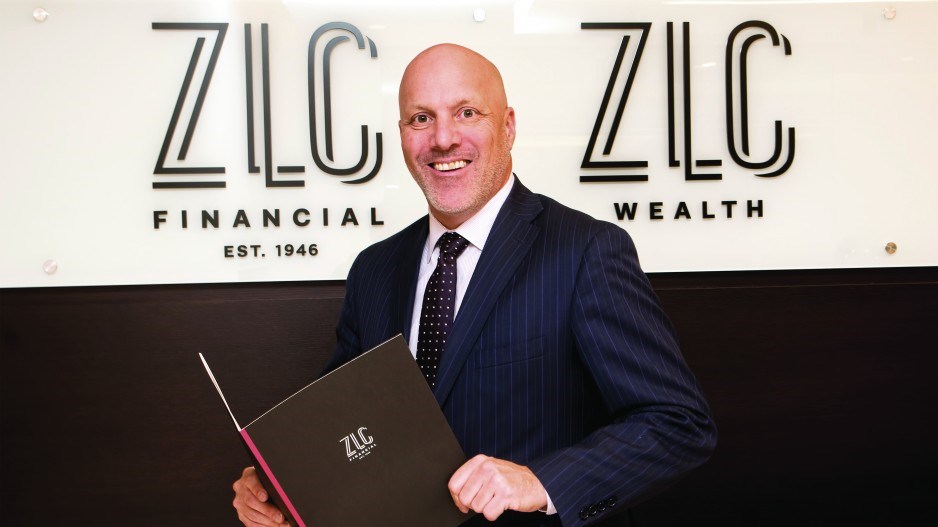Retirement just doesn’t mean what it once did. When 65 was selected as the retirement age, the average life expectancy was around 70. Today, retirement might happen at 55 or 75, give or take a decade and, as a result of advances in lifespans, retirement might last 30 or 40 years.
This is great news for golfers, travellers and avid hobbyists. But it also presents challenges – not least to the social safety net but also to individuals who are planning a future of indeterminate but likely many years of leisure.
For the purposes of financial planning, “retirement” is an amorphous and not necessarily useful term, says Aeronn Zlotnik, an associate with ZLC Financial.
“I use the term financial independence,” says Zlotnik. “I think that’s a fantastic term to describe the day that you no longer have to work.”
Some people retire earlier and some are carried out of the workplace in a box. Sometimes this is a choice and sometimes it is not. Much depends on planning. In a survey of financial planners about prepping for a successful retirement, this is the message upon which everyone agrees: there is no template.
“Everyone has a very different idea of what retirement is going to look like,” says Christine Van Cauwenberghe, vice-president, tax and estate planning, for Investors Group. “The starting point for most people when they’re doing a retirement plan is to get a good sense for what that personal objective may be.”
When the proverbial, yet very often real, 55-year-old client with no retirement strategy lands in the chair opposite them, all financial planners agree on the first steps. They will ask what the potential retiree imagines that new phase of life will be, to review his or her current financial situation and then try to square the two.
Is there a workplace pension? How much can be expected from government pensions? What registered savings and other investments does the client have? How much equity is in their home? Do they have debt?
Smart debt •On that last question, Cauwenberghe counters the conventional wisdom that retirees should be debt-free.
“It’s really difficult to say that debt is a bad thing in all scenarios,” she says. “In some cases, people have a significant portfolio and they’re saying, ‘Well, I could cash out part of my portfolio, but that would trigger [capital] gains or I would have to take money out of my RSPs and I just don’t want to incur those kinds of taxes.’”
Having the resources to counterbalance debt is different from having few or no assets while sitting on a load of credit card or other consumer debt, she cautions.
In terms of building and protecting a nest egg, there is a potential contradiction between need and prudence. The closer one is to retirement, the more pressure one may feel to build savings or investments quickly, precisely at the time when the risk-taking associated with high returns is most hazardous.
“It really is person-specific,” Cauwenberghe says. “But you need to be honest with yourself and honest with your planner as to how much volatility you can handle, and if you can’t handle much volatility, you need to look at perhaps something like a guaranteed investment fund, where you may be paying a little more in terms of the annual fees, but that guarantees certain payouts.”
The unknowable variable in retirement planning is that we do not know how long we will live.
“Generally speaking,” she says, laughing, “it’s not a problem if you die with too much money.”
But there are other variables to consider beyond life expectancy.
“You also have to consider things like disability, critical illness, long-term care insurance. There’s all kinds of different living benefits that may be necessary as part of your plan,” says Cauwenberghe.
Being a financial planner can verge into relationship counselling at times.
“The conversations people have with their financial planner can get to the heart of what people want in life – and sometimes partners find they don’t have the same goals,” says George Tsamis, regional vice-president of RBC. “Quite often you’ll find individuals who have contrasting goals in retirement.”
Once an adviser understands the client’s goals, then it’s really about setting up a plan, Tsamis says. “Depending on the age they come to you, there’s certain things you can or cannot do, but we take a look at five principles to very successful investing, and they are: investing early, investing regularly, investing enough, diversifying your portfolio and having a plan. I think the last step is the most important.”
Another variable for B.C. retirees is real estate. While other Canadians may have been socking away money in savings or investments, those in Metro Vancouver were more likely paying down enormous mortgages. This can translate into some sweet equity, but it may also mean all the eggs are in one basket that is dependent on a growing real estate market.
If an older couple is sitting on a mortgage-free, million-dollar, four-bedroom house, they may consider liquidating and moving into a $500,000 apartment (or a spread in the Okanagan or on Vancouver Island).
Sophie Salcito, a wealth adviser at Vancity, says a lump-sum investment of $500,000 at four percent will generate $20,000 a year in income (before inflation and taxes). This may not be a windfall, but, she notes, it’s more than you will get rattling around for years in a too-big house.




